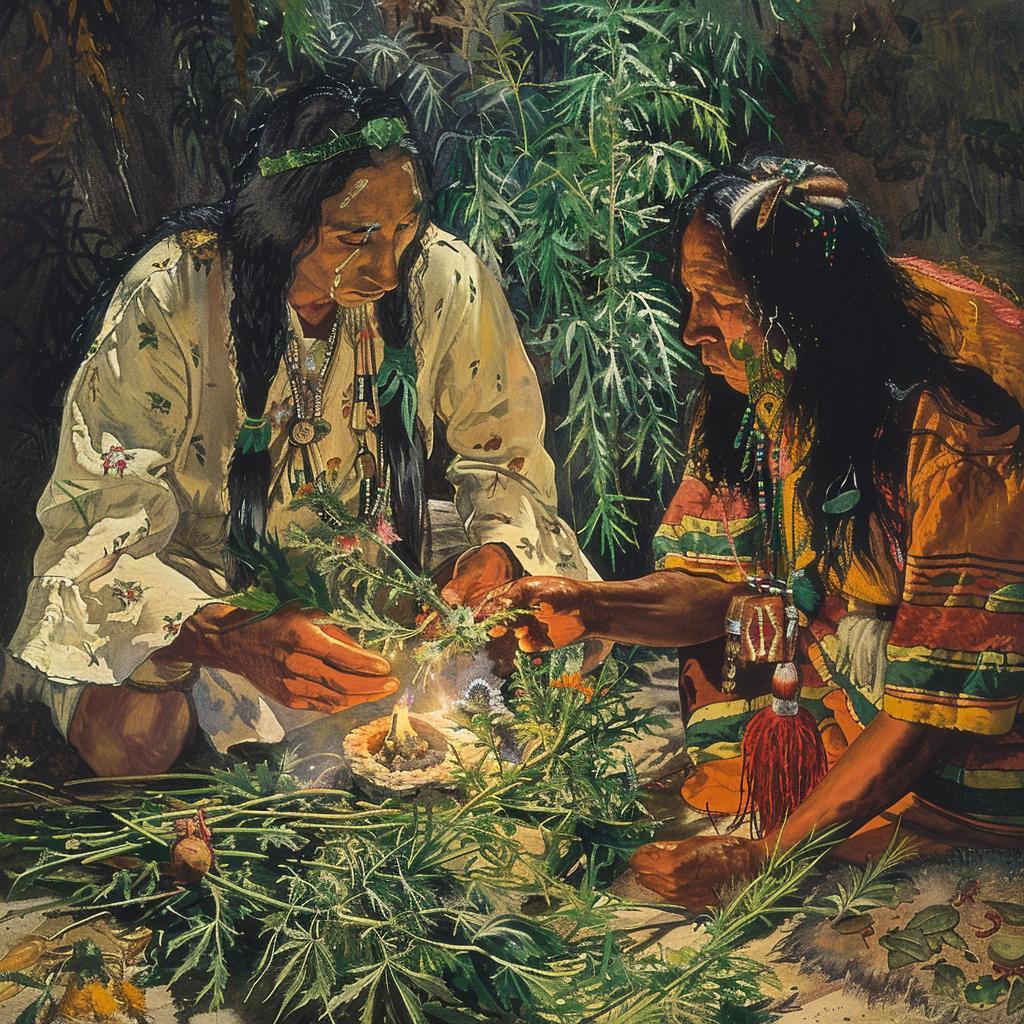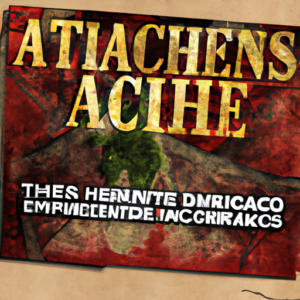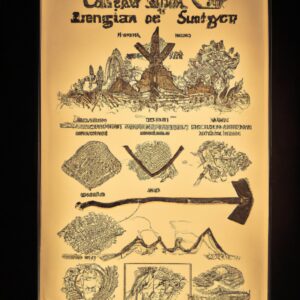The Role of Oral Tradition in Preserving Apache History
Introduction
The Apache people, with their rich tapestry of culture and identity, have relied on oral tradition to transmit their history, wisdom, and values through generations. This method of storytelling serves as both a means of preserving heritage and a vehicle for teaching younger generations about their roots. Apache oral tradition encompasses a wide array of narratives, including myths, legends, and historical accounts, all interwoven with lessons central to their identity. The Role of Oral Tradition in Preserving Apache History in Apache culture
Central to this tradition is the belief that stories carry the spirit of the ancestors, ensuring that their experiences and teachings remain alive. Apache storytellers, often regarded as keepers of knowledge, play a crucial role in this preservation process. Their ability to engage audiences not only captivates listeners but also reinforces community bonds and collective memory. The Role of Oral Tradition in Preserving Apache History in Apache culture
Through the lens of oral tradition, the Apache recount their history, emphasizing themes of resilience, adaptation, and harmony with nature. By relaying tales of their ancestors’ struggles and triumphs, they cultivate a sense of pride and belonging in their community. This interconnectedness of stories and identity is a vital aspect of Apache culture, highlighting the importance of memory in shaping their future. The Role of Oral Tradition in Preserving Apache History in Apache culture
“The stories we share are the threads that weave our past into the fabric of our present.”
History – The Role of Oral Tradition in Preserving Apache History
The Apache people have relied on oral tradition for centuries as a vital means of preserving their history, culture, and values. This rich tapestry of storytelling serves not only as a record of events but also as a vehicle for passing down knowledge and wisdom from one generation to the next. Elders hold a revered position in Apache society, often sharing their insights and experiences through narratives that encapsulate the community’s collective memory.
Oral history among the Apache encompasses various forms, including myths, legends, songs, and proverbs. These stories often convey fundamental lessons about life, survival, and the relationship between the people and the natural world. Through engaging with these narratives, younger members of the community are taught the importance of respect, resilience, and harmony with their surroundings.
One of the key elements of Apache oral tradition is its adaptability, allowing stories to evolve while remaining rooted in essential truths. This fluidity ensures that the teachings resonate with each new generation, reflecting the values and experiences of the time. As a result, the oral tradition serves not just as a historical account but as a living practice that actively shapes Apache identity.
In this way, the role of oral tradition in preserving Apache history is both profound and practical. By maintaining a continuous dialogue between past and present, the Apache people honor their ancestors and reinforce their cultural heritage. This commitment to oral storytelling underscores the resilience of Apache culture and its enduring significance in a rapidly changing world.
An Apache story
The Role of Oral Tradition in Preserving Apache History – Among the Apache, storytelling is more than entertainment; it is a vital means of preserving history and culture. Elders gather the youth around them, weaving tales that embody the struggles, triumphs, and teachings of their ancestors. These stories serve as a bridge to the past, imparting wisdom that shapes identity and community values.
One of the most revered stories is that of the creation, which illustrates the connection of the Apache people to the land and the spiritual forces that govern it. As the elders recount the tale, they emphasize the importance of harmony, respect for nature, and the interdependence of all living things. Through these narratives, the Apache impart lessons that are essential for the survival of their way of life.
“With each story, a piece of our history is not just told but lived, forming the fabric of who we are.â€
The Role of Oral Tradition in Preserving Apache History – Oral tradition acts as a vessel for cultural values, ensuring that each generation understands their legacy. Rituals and ceremonies woven into storytelling reinforce the teachings, as individuals participate in both the telling and the listening. This process fosters a sense of community and belonging, reminding the Apache of their shared identity and purpose.
Under the vast azure sky of the Apache lands, an elder named Chimal sat near a flickering fire, surrounded by eager young faces. His silver hair glinted like the stars that soon would adorn the night. The crackling flames danced, casting shadows that told tales of the past.
“Gather close,” Chimal beckoned, his voice steady like the roots of the mesquite tree. “Let me share with you a story that lives within our hearts, a treasure passed down through the whispers of our ancestors.” He paused, his gaze lifting to the horizon where the sun dipped low, painting the sky with hues of orange and purple.
“Long ago, when the rivers sang their songs and the mountains stood tall like guardians, there lived a brave named Taza,” Chimal began, his eyes dancing with memories. “Taza was known for his courage and swift feet, but more importantly, he had a gift for storytelling. He would sit among the people, his voice weaving images of our history, our struggles, and our victories.”
One day, the villagers gathered as Taza stood beneath the giant cottonwood, its leaves shimmering like emeralds in the light. “Listen,†he called, the warmth of his spirit enveloping them. “Our ancestors walked these paths, their laughter echoing in the canyons.†With each word, he painted vivid pictures—of the great migration, of the buffalo herds that roamed, and of the celestial stories that guided them through the night.
“But one day, a dark shadow fell upon our lands,†Taza’s voice grew somber. “The settlers came, bringing fear and forgetting. They do not know our stories! They do not honor our spirit!â€
A child in the crowd, narrow-eyed with innocence, spoke up, “What can we do, Taza?â€
The Role of Oral Tradition in Preserving Apache History – “We must hold fast to our stories, little one. Each tale we tell keeps our identity alive. We must teach our children, just as these words are taught to you today,†he replied, a determined fire igniting in his chest.
As the sun set, bathing everything in twilight, the villagers embraced Taza’s words. From that day on, they told stories by the fireside, shared songs of the past, and danced under the stars to honor their history. They became storytellers, guardians of their culture, ensuring that no voice would be forgotten.
Chimal looked at the young faces before him, the firelight reflecting their wide eyes. “Remember, children,†he said, his voice a gentle breeze. “Our stories are alive, flowing as the rivers, strong as the mountains. They connect us to our past and guide us into the future. Never forget to honor them.â€
As the fire crackled and the stars blinked above, the children nodded, hearts swelling with pride. They understood now—the role of oral tradition was not just preserving history; it was an unbreakable bond that would guide their souls for generations to come.
Implementing it in your life
To implement the wisdom of oral tradition in your life, start by actively listening to the stories shared by your family and community. Embrace the narratives that shape your identity, reflecting on how they connect you to those who came before you. Make a conscious effort to engage in discussions about these stories, allowing them to foster relationships and build a sense of belonging.
Additionally, create opportunities for storytelling in your own life. This can be achieved by sharing your personal experiences and paying respect to the lessons they hold. Consider documenting these stories through writing or recording, ensuring that the collective knowledge of the past is preserved for future generations.
- Schedule regular family gatherings to share stories and experiences.
- Encourage younger generations to ask questions and participate in storytelling.
- Record local history through interviews with elders or knowledgeable community members.
- Participate in cultural events that highlight oral traditions.
- Write down personal stories and share them in a blog or journal.
- Teach others about the significance of oral traditions in your culture.
- Reflect on each story’s lessons and how they apply to your life.
These steps not only honor the Apache tradition of storytelling but also promote personal growth. By sharing and listening to stories, you cultivate empathy, understanding, and a deeper connection to your roots. Engaging with the oral tradition enriches your perspective, allowing you to navigate life’s challenges guided by the wisdom of those who have come before you.
Moreover, documenting and reflecting on these narratives enhances your self-awareness and appreciation for your heritage. As you embody and share the teachings of oral tradition, you contribute to a legacy that inspires others and fosters a stronger sense of community.
Conclusion – The Role of Oral Tradition in Preserving Apache History
In conclusion, the oral tradition serves as a vital thread in the fabric of Apache history, weaving together tales of resilience, spirituality, and identity. Through generations, Apache storytellers have preserved the fundamental values and teachings of their culture, ensuring that their rich heritage remains alive within their communities.
As we reflect on the significance of these oral narratives, it is essential to recognize the lessons they impart about respect for nature, community bonds, and the importance of heritage. The wisdom shared through these stories reflects not only the history of the Apache people but also universal themes that resonate across cultures.
To honor and support the preservation of Apache history, it is crucial for individuals and organizations to engage with and promote Apache storytelling practices. By actively participating in these traditions and sharing their significance, we can contribute to the continuation of this invaluable oral heritage.
“The stories of our ancestors are the roots of our identity.â€
The image and article have been augmented with AI.
Further Resources:
- What is the importance of oral tradition in Apache spirituality?
- What is the significance of the warrior tradition in Apache spirituality?
- What is the role of storytelling in preserving Apache spiritual traditions?
- What is the importance of the concept of harmony in Apache spirituality?
- What is the significance of the bow and arrow in Apache spiritual symbolism?
- What is the importance of silence and solitude in Apache spiritual practices?
- What is the role of music and dance in Apache spiritual ceremonies?
Thank you for reading!







